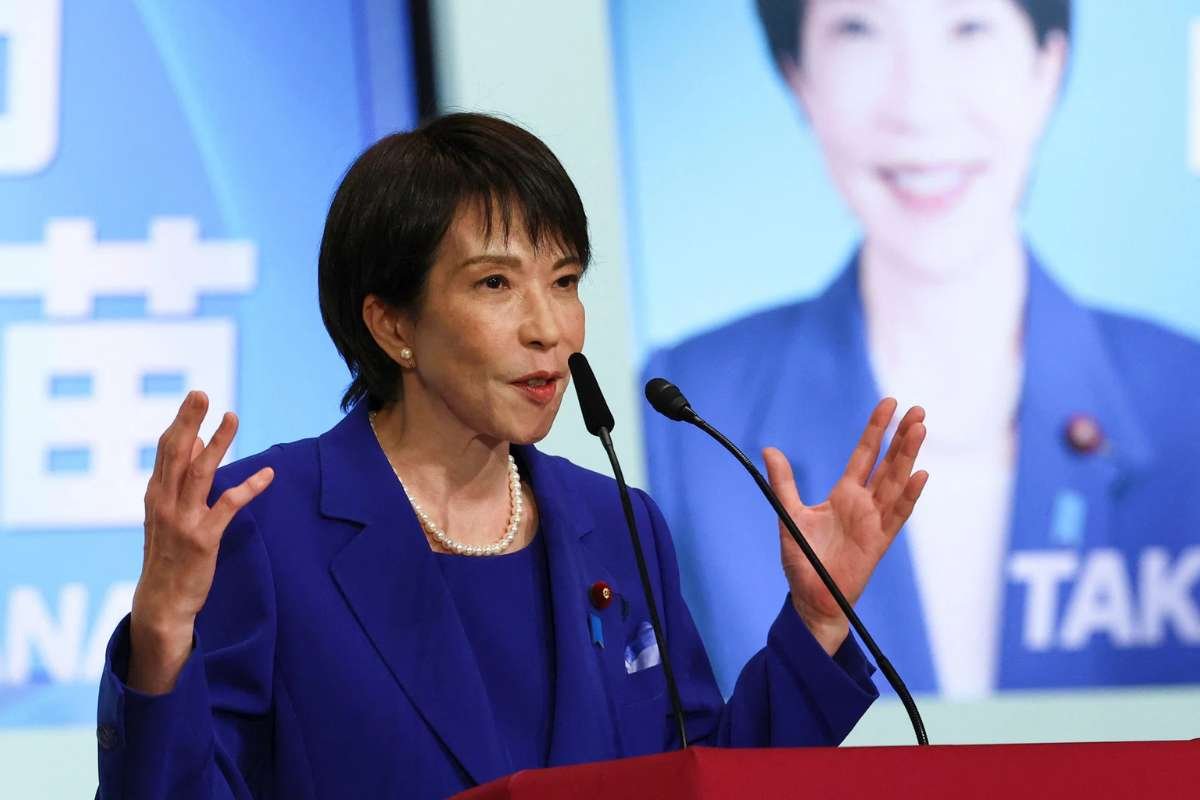Key Points:
- Komeito’s exit threatens Takaichi’s majority.
- Markets react to political uncertainty.
- Takaichi seeks new allies to secure power.
Sanae Takaichi’s bid to become Japan’s first female prime minister has hit a significant roadblock as Komeito, the junior partner in the ruling coalition, announced its decision to withdraw. The sudden exit of Komeito threatens the stability of the Liberal Democratic Party (LDP) and complicates the upcoming parliamentary vote scheduled for October 15. Political analysts suggest that this move could reshape the dynamics of Japan’s government and create uncertainty over the LDP’s ability to maintain a majority.
Takaichi recently secured victory in the LDP leadership race, positioning herself as the party’s next leader. Her win was seen as a step toward modernizing Japan’s leadership while maintaining the party’s conservative values. However, Komeito’s departure has left the coalition without a majority in the lower house of parliament, making it unclear whether she can secure the required votes. Party insiders indicate that negotiations with smaller opposition parties may now become essential for Takaichi to consolidate support.
The departure also reflects deeper ideological tensions within the coalition. While the LDP favors ambitious economic reforms and a conservative agenda, Komeito has traditionally focused on social stability and moderate policies. Their exit highlights the challenge Sanae Takaichi faces in uniting different factions and maintaining a cohesive government.
Economic Implications
Political instability has quickly reverberated through Japan’s financial markets. Yields on the 20-year Japanese government bond surged to a 26-year high, while the 10-year yield climbed to a 17-year peak. Investors have expressed concern that the uncertainty could impact fiscal stability, particularly if the LDP fails to pass key economic measures.
Sanae Takaichi’s proposed policies, which include significant fiscal stimulus and a cautious approach to interest rate adjustments, are intended to boost economic growth. However, analysts warn that without coalition support, these measures may face delays or modifications, potentially exacerbating existing fiscal challenges.
In response to the political uncertainty, Takaichi has opened discussions with opposition parties, including the Democratic Party for the People. These talks focus on reforms aimed at increasing household disposable income through tax adjustments and social measures. Observers note that the success of these negotiations could determine the trajectory of Japan’s economic policy in the coming months and influence investor confidence.
Strategic Moves Within the LDP
To strengthen her position within the party, Sanae Takaichi has appointed former Prime Minister Taro Aso as LDP vice president and former Finance Minister Shunichi Suzuki as secretary-general. These appointments are seen as efforts to balance fiscal discipline with the party’s conservative agenda and to navigate internal divisions. Aso’s presence is expected to moderate aggressive economic policies, while Suzuki will play a key role in coordinating party strategy and legislative priorities.
Despite these strategic moves, the LDP faces significant challenges in rebuilding its coalition and ensuring sufficient support in the parliamentary vote. The political landscape remains fluid, with potential shifts in alliances and policy priorities likely in the coming weeks. For Takaichi, the immediate focus will be on securing parliamentary backing while maintaining party unity, a task complicated by Komeito’s departure.
As Japan watches closely, the next few days will be critical in determining whether Sanae Takaichi can overcome these obstacles and lead the country, or if prolonged negotiations will delay the formation of a stable government. The outcome will have lasting implications for both political stability and economic policy in Japan.
Visit CIO Women Magazine For The Most Recent Information.









